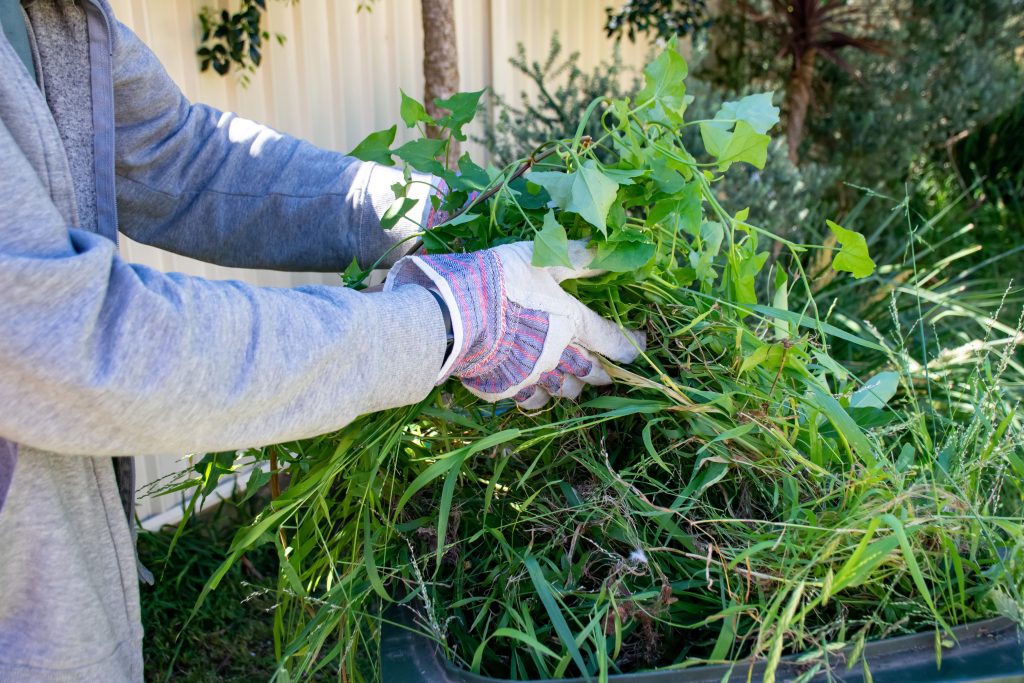I’m going to give you five great tips for doing things in your home and yard that are good for the environment. These ideas will not only help the environment, but they may also help you save money in the long run. For example, you’ll learn how to use organic fertilizers and save water to make your home and yard more eco-friendly.
Adding these eco-friendly habits to your daily routine can have a big impact on the world and make our houses healthy and last longer for people now and in the future. Let’s look at these tips and start today to make things better.
Tip 1: Reduce Your Carbon Footprint
The ways we garden have a big effect on our carbon footprint. The carbon footprint is a way to figure out how much carbon dioxide and other climate gases our actions release into the air. But if we grow in eco-friendly ways, we can cut down on our carbon footprint and help make the world a better place for future generations.
One way to cut down on carbon emissions is to use plants from our area in our fields. Native plants do better in their native conditions and need less water, fertilizer, and care. This means that they need fewer resources to grow and stay healthy, which means that they release fewer harmful gases.
Another important way to lower our carbon footprint is to stay away from chemicals that are bad for us. Whether used or packaged, chemicals used to create synthetic fertilizers and insecticides emit greenhouse gasses. Using organic and natural solutions will help reduce these poisons and keep harmful chemicals out of the surroundings.
Reducing carbon dioxide emissions also depends on water saving. We can use a lot less water in our fields by putting in drip watering systems, collecting rainwater in water butts, and generally being more water-efficient. In turn, this lowers the amount of energy needed to feed and clean water, which lowers carbon emissions generally.
Getting rid of our carbon footprint in the yard comes down to choices we make on purpose. Using organic garbage, composting, and artificial nutrients less often will help us cut down on greenhouse gas emissions even more. To make your yard and home more eco-friendly, you might also want to use recycled materials and make as little trash as you can.

Tip 2: Conserve Water Usage
Less water used in gardening is better for the earth and can save you money on your water bill. Here are some good ways to make sure your plants don’t need too much water:
- Set up a way to store rainwater. They gather rainwater from roofs and store it so that it can be used to water plants and clean up the yard. These tips protect water sources and help people use less tap water.
- Use devices that water plants slowly. With these methods, water goes straight to the roots of plants, so less water is lost through flow or away. You can either use timers or walk up to them to make sure they get just the right amount of water.
- Plant a rain garden. A rain garden is a place with plants that lets rainwater soak into the ground instead of going into storm drains. Rain gardens help keep water from running off and put less stress on sewage systems by collecting and cleaning rainwater.
Tip 3: Avoid Harmful Chemicals In The Garden
Putting dangerous poisons in the garden can hurt the environment and the health of everything in and around the garden. Luckily, there are better options that can be used for gardening that will last.
Natural bug control is an important part of farming that doesn’t harm the environment. Don’t use dangerous chemical poisons. Instead, try to attract natural animals that can keep plant pests in check. Bees, ladybugs, lacewings, and birds are some examples of good bugs that eat bad bugs. To get rid of pests without hurting the environment, you can also make your own sprays with things like garlic and soap.
You might also want to try buddy planting as a healthy way to grow plants. By growing species that get along with each other, you can easily keep pests away and encourage healthy growth. For instance, marigolds can keep bugs away that eat tomatoes, and basil can make tomatoes taste better while keeping bugs away.
Lastly, a good way to stay away from manmade poisons is to make your own waste and use it as natural fertilizer. Composting adds nutrients to the earth, makes it stronger, and makes it better at holding water. By reusing yard and cooking waste, you can make nutrient-rich compost that is good for plants and reduces waste.
Tip 4: Utilize Sustainable Gardening Practices
Not only does using safe gardening methods help the earth, but they also help your garden grow better. These actions are very important for protecting the health of the land, saving water, cutting down on chemical use, and protecting wildlife. Here are five tips to help you garden in a way that is good for the environment:
- Use native plant species. Putting native species in your yard helps protect biodiversity by giving local animals food and a place to live. Because these plants have adapted to the land and environment where they grow, they need less water, fertilizer, and pesticide. Find out what plants are native to your area and add them to your flower beds and other outdoor areas.
- Save Water: One important part of sustainable farming is using water efficiently. To get water straight to the roots, set up drip watering systems or use soaking hoses. Put in water butts or barrels to collect rainwater. Collect rainwater and use it to water your plants. This will cut down on the demand for water from the mains. Putting mulch around plants will help them stay wet and stop weeds from growing, so you won’t have to water them as much.
- Use organic pest control. Instead of using dangerous chemical poisons, choose organic ways to get rid of pests. By giving them places to live, like bug houses and bird boxes, you can encourage birds and insects that eat plant pests. To get rid of pests without hurting the environment, you can also use homemade solutions like garlic spray or soap and water.
- Use sustainable soil management: Use sustainable soil management techniques to keep the soil healthy. Do not over-till or flatten the soil because it can change its structure and make it less able to hold water. Use peat-free and organic fertilizer to add nutrition to the soil and make it healthier. Change the crops you grow and use cover crops to keep the land healthy and stop it from washing away.
- Use eco-friendly materials: When you work on your yard projects, use recycled materials whenever you can. Eco-friendly and natural mulch and nutrients should be used. Use plastic bottles and man-made products as little as possible. For yard borders, pots, and garden furniture, you might want to use recycled materials.
Tip 5: Make The Most Of Garden Waste
Making the most of yard trash is an important part of growing in a way that doesn’t harm the environment. yard trash doesn’t have to be thrown away; it can be used to feed and improve your yard while reducing waste. Here are some environmentally friendly ways to deal with outdoor waste:
- Putting organic materials from your yard, like leaves, grass clippings, and food scraps, back into the soil is a great way to compost. By making a compost pile or using a compost bin, you can turn this trash into compost that is full of nutrients. It cuts down on both the amount of trash that ends up in dumps and the need for man-made nutrients. This then helps cut down on carbon pollution and makes the land healthy.
- Making mulch: Making mulch is another way to use yard waste. You can make a natural mulch out of grass clippings, leaves, and trimmed twigs that helps keep water in the soil, stops weeds from growing, and adds nutrients. Not only does mulching cut down on the need to water and pull weeds, but it also helps the soil get better over time.
- Natural Ways to Get Rid of bugs: Some yard trash can be used to get rid of bugs naturally. Some plant trimmings or broken eggshells, for instance, can help keep slugs and snails away. Aphids and other bugs will stay away from onion and garlic scraps. You can help make the earth healthy and last longer by using these natural ways instead of chemicals that are bad for it.
- Reusing and recycling materials: Cutting down on waste is an important part of sustainable farming, and you can do this by reusing and recycling materials. Instead of getting new pots, for example, you could reuse old ones or make yard paths and borders out of recycled materials. You can have less of an effect on the earth by cutting down on waste and reusing things.

Conclusion
In conclusion, making an eco-friendly yard is not only good for the earth but also helpful for the homeowner in many ways. By using environmentally friendly methods, we can lower our carbon footprint and help lower greenhouse gas pollution. This helps slow down climate change and protect the Earth for future generations.
